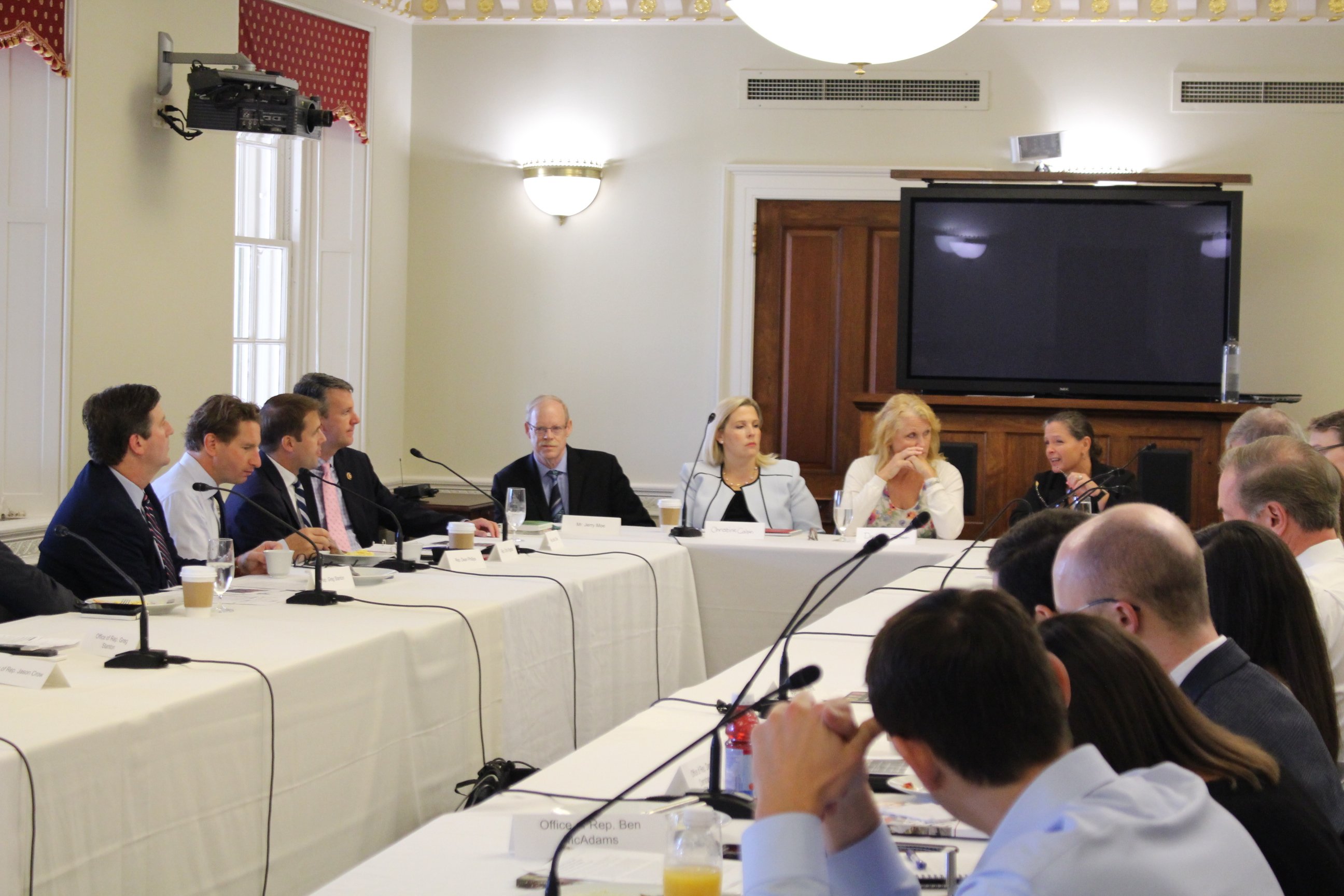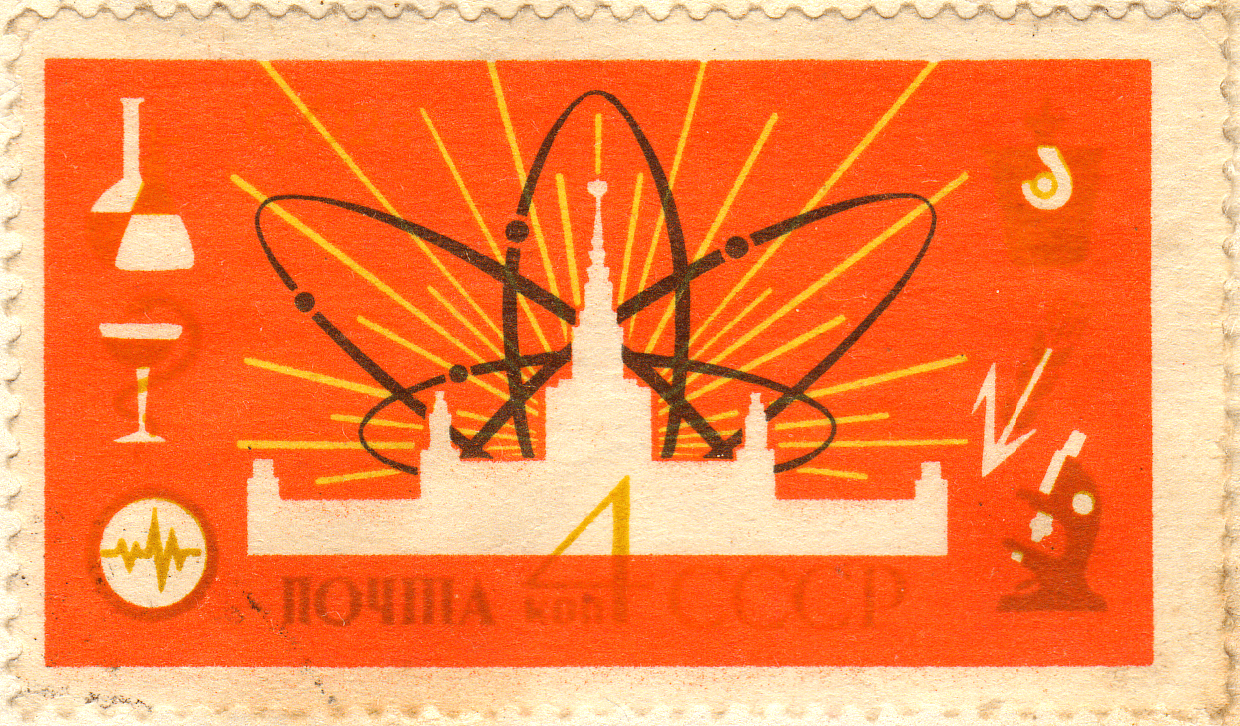|
RAS Professor
Professor of the Russian Academy of Sciences (Professor of the RAS, or RAS Professor; – Proféssor Rossíiskoj akadémii naúk) is an academic rank introduced in 2015 by the RAS to be conferred to distinguished Russian scientists from all fields, who are not yet members of the Academy. Research achievements of RAS Professors are supposed to be higher than those of an ordinary university professor but their teaching experience may be relatively modest. Along with its role as an academic rank, “RAS Professor” is an honorary title emphasizing merits of an individual. As a concept, the RAS Professorship was originally proposed by the Presidium of RAS and its President (in 2013—2017) Vladimir Fortov, the motivation being to boost an involvement of top researches from the younger generation of Russian scientists in the functioning of the Russian Academy of Sciences. Requirements and criteria The formal prerequisites for the rank of a RAS Professor are Russian citizenship, af ... [...More Info...] [...Related Items...] OR: [Wikipedia] [Google] [Baidu] |
List Of Academic Ranks
Academic rank (also scientific rank) is the rank of a scientist or teacher in a college, high school, university or research establishment. The academic ranks indicate relative importance and power of individuals in academia. The academic ranks are ''specific for each country'', there is no worldwide-unified ranking system. Among the common ranks are professor, associate professor ( docent), assistant professor and lecturer/instructor. In most cases, the academic rank is automatically attached to a person at the time of employment in a position with the same name, and deprived when a working relationship ends. Thus, the term "academic rank" usually means the same as "position in academia". In some countries, however, the terms "position" and "academic rank" are not synonymous. So in modern Russia there exist the docent and professor ranks, yet the set of positions in academia is broader. The academic rank is conferred only after the person has been successfully working ... [...More Info...] [...Related Items...] OR: [Wikipedia] [Google] [Baidu] |
Saint Petersburg
Saint Petersburg, formerly known as Petrograd and later Leningrad, is the List of cities and towns in Russia by population, second-largest city in Russia after Moscow. It is situated on the Neva, River Neva, at the head of the Gulf of Finland on the Baltic Sea. The city had a population of 5,601,911 residents as of 2021, with more than 6.4 million people living in the Saint Petersburg metropolitan area, metropolitan area. Saint Petersburg is the List of European cities by population within city limits, fourth-most populous city in Europe, the List of cities and towns around the Baltic Sea, most populous city on the Baltic Sea, and the world's List of northernmost items#Cities and settlements, northernmost city of more than 1 million residents. As the former capital of the Russian Empire, and a Ports of the Baltic Sea, historically strategic port, it is governed as a Federal cities of Russia, federal city. The city was founded by Tsar Peter the Great on 27 May 1703 on the s ... [...More Info...] [...Related Items...] OR: [Wikipedia] [Google] [Baidu] |
Academic Ranks In Russia
Academic ranks in Russia (also called scientific ranks) are the conferred titles, indicating relative importance and power of professors, researchers, and administrative personnel in Russian academia and scientific institutions. The rank “certifies” the demonstrated ability of an individual to function in the specific academic position(s). Ranks and scientific hierarchy in Russia With respect to professionals involved in teaching and/or research and employed at the universities/research institutes or in industry, there are three attributes: academic (scientific) rank, academic (scientific) degree, and position. Presently conferred academic ranks In Russia, as of 2018, the scientific ranks of a Docent (Associate Professor) and a Professor (Full Professor) were conferred. Detailed information on the ranks can be obtained – in Russian – on the website of the Higher Attestation Commission which is responsible for conferment in the most cases. Often, the word “rank” in ... [...More Info...] [...Related Items...] OR: [Wikipedia] [Google] [Baidu] |
Volunteering
Volunteering is an elective and freely chosen act of an individual or group giving their time and labor, often for community service. Many volunteers are specifically trained in the areas they work, such as medicine, education, or emergency rescue. Others serve on an as-needed basis, such as in response to a natural disaster. Etymology and history The verb was first recorded in 1755. It was derived from the noun ''volunteer'', in 1600, "one who offers himself for military service," from the Middle French ''voluntaire''. In the non-military sense, the word was first recorded during the 1630s. The word ''volunteering'' has more recent usage—still predominantly military—coinciding with the phrase ''community service''. In a military context, a volunteer army is a military body whose soldiers have chosen to enlist, as opposed to having been conscripted. Such volunteers do not work "for free" and are given regular pay. 19th century During this time, America experienced ... [...More Info...] [...Related Items...] OR: [Wikipedia] [Google] [Baidu] |
Working Group
A working group is a group of experts working together to achieve specified goals. Such groups are domain-specific and focus on discussion or activity around a specific subject area. The term can sometimes refer to an interdisciplinary collaboration of researchers, often from more than one organization, working on new activities that would be difficult to sustain under traditional funding mechanisms (e.g., federal agencies). Working groups are variously also called task groups, workgroups, technical advisory groups, working parties, or task forces. The lifespan of a working group can last anywhere between a few months and several years. Such groups have the tendency to develop a ''quasi-permanent existence'' when the assigned task is accomplished; hence the need to disband (or phase out) the working group when it has achieved its goal(s). A working group's performance is made up of the individual results of all its individual members. A team's performance is made up of both i ... [...More Info...] [...Related Items...] OR: [Wikipedia] [Google] [Baidu] |
Russian Space Research Institute
The Russian Space Research Institute (; SRI RAS, Russian abbreviation: ИКИ РАН, IKI RAN) is the leading organization of the Russian Academy of Sciences on space exploration to benefit fundamental science. It was formerly known as the Space Research Institute of the USSR Academy of Sciences (Russian abbr.: ИКИ АН СССР, IKI AN SSSR). It is usually known by the shorter name Space Research Institute and especially by the initialism IKI. The institute is located in Moscow with a staff of 289 scientists. It conducts scientific research in the fields of astrophysics, planetary science, solar physics, Sun-Earth relations, cosmic plasma, and geophysics. IKI also develops and tests space technologies in collaboration with the Russian Academy of Sciences and the Federal Space Agency. History It was founded on May 15, 1965, by the Soviet Union's Council of Ministers decree #392-147. Initially, the institute formed its staff by drawing scientists from other research organ ... [...More Info...] [...Related Items...] OR: [Wikipedia] [Google] [Baidu] |
Andrei Gromyko
Andrei Andreyevich Gromyko ( – 2 July 1989) was a Soviet politician and diplomat during the Cold War. He served as Ministry of Foreign Affairs (Soviet Union), Minister of Foreign Affairs (1957–1985) and as List of heads of state of the Soviet Union, Chairman of the Presidium of the Supreme Soviet (1985–1988). Gromyko was responsible for many top decisions on Soviet foreign policy until he retired in 1988. In the 1940s, Western pundits called him ''Mr. Nyet'' ("Mr. No"), or ''Grim Grom'', because of his frequent use of the Soviet United Nations Security Council veto power, veto in the United Nations Security Council. Gromyko's political career started in 1939 in the People's Commissariat for Foreign Affairs (renamed Ministry of Foreign Affairs in 1946). He became the Soviet ambassador to the United States in 1943, leaving that position in 1946 to become the Soviet Permanent representative, Permanent Representative to the United Nations in New York. Upon his return to Mosc ... [...More Info...] [...Related Items...] OR: [Wikipedia] [Google] [Baidu] |
Soviet Union
The Union of Soviet Socialist Republics. (USSR), commonly known as the Soviet Union, was a List of former transcontinental countries#Since 1700, transcontinental country that spanned much of Eurasia from 1922 until Dissolution of the Soviet Union, it dissolved in 1991. During its existence, it was the list of countries and dependencies by area, largest country by area, extending across Time in Russia, eleven time zones and sharing Geography of the Soviet Union#Borders and neighbors, borders with twelve countries, and the List of countries and dependencies by population, third-most populous country. An overall successor to the Russian Empire, it was nominally organized as a federal union of Republics of the Soviet Union, national republics, the largest and most populous of which was the Russian SFSR. In practice, Government of the Soviet Union, its government and Economy of the Soviet Union, economy were Soviet-type economic planning, highly centralized. As a one-party state go ... [...More Info...] [...Related Items...] OR: [Wikipedia] [Google] [Baidu] |
Economic History Of The Russian Federation
After the dissolution of the Soviet Union in 1991 and the end of its centrally-planned economy, the Russian Federation succeeded it under president Boris Yeltsin. The Russian government used policies of Shock therapy (economics), shock therapy to liberalize the economy as part of the transition to a market economy, causing a sustained economic recession. GDP per capita levels returned to their 1991 levels by the mid-2000s. The economy of Russia is much more stable today than in the early 1990s, but inflation still remains an issue. Historically and currently, the Russian economy has differed sharply from major developed economies because of its weak legal system, underdevelopment of modern economic activities, technological backwardness, and lower living standards. Historical background Economic history of the Russian Empire Russian national income per capita increased and moved to closer to the most developed economies of Northern and Western Europe from the late 17th cen ... [...More Info...] [...Related Items...] OR: [Wikipedia] [Google] [Baidu] |
Novosibirsk State University
Novosibirsk State University (NSU) is a public research university located in Novosibirsk, Russia. The university was founded in 1958, on the principles of integration of education and science, early involvement of students with research activities and the engagement of leading scientists in its teaching programmes. As of 2022, Novosibirsk State University had 246th place in the rating of the QS World University Rankings, and in 2023 was ranked #579 in the world by '' U.S. News & World Report'', and #801 in the world by World University Rankings by ''Times Higher Education''. History From the perspective of natural resources, Siberia has always been, and remains, the essential region for all of Russia. In the late 1950s, Siberia provided the country with 75% of its coal and possessed 80% of the nation's hydroelectric resources. Siberia became industrialized, but science then was largely of the applied variety and did not satisfy its needs. The USSR Academy of Sciences ca ... [...More Info...] [...Related Items...] OR: [Wikipedia] [Google] [Baidu] |
Moscow State University
Moscow State University (MSU), officially M. V. Lomonosov Moscow State University,. is a public university, public research university in Moscow, Russia. The university includes 15 research institutes, 43 faculties, more than 300 departments, and six branches. Alumni of the university include past leaders of the Soviet Union and other governments. As of 2019, 13 List of Nobel laureates, Nobel laureates, six Fields Medal winners, and one Turing Award winner were affiliated with the university. History Imperial Moscow University Ivan Shuvalov and Mikhail Lomonosov promoted the idea of a university in Moscow, and Elizabeth of Russia, Russian Empress Elizabeth decreed its establishment on . The first lectures were given on . Saint Petersburg State University and MSU each claim to be Russia's oldest university. Though Moscow State University was founded in 1755, St. Petersburg which has had a continuous existence as a "university" since 1819 sees itself as the successor of an a ... [...More Info...] [...Related Items...] OR: [Wikipedia] [Google] [Baidu] |




